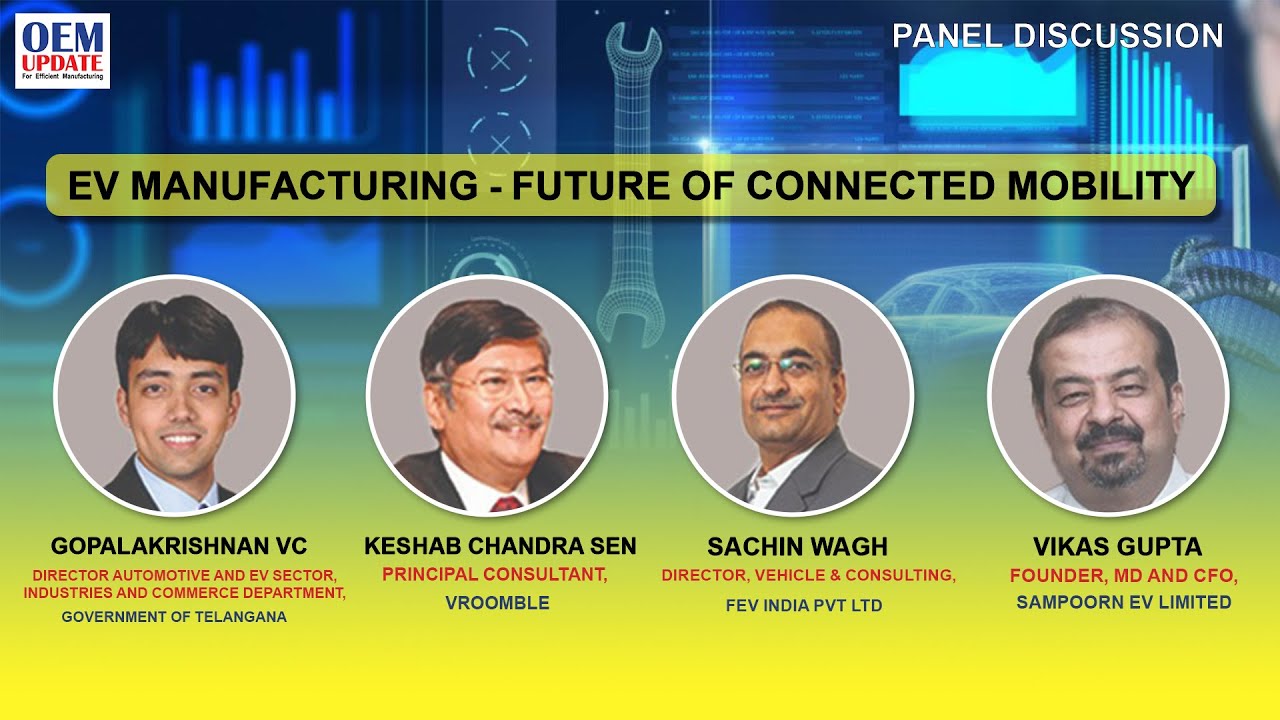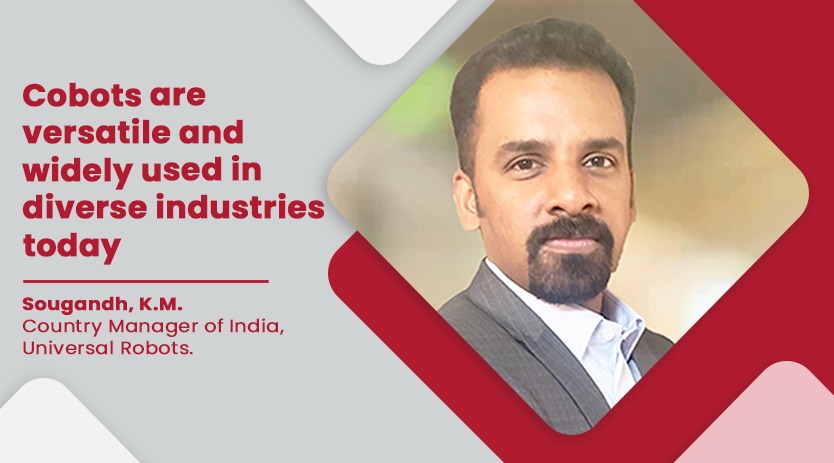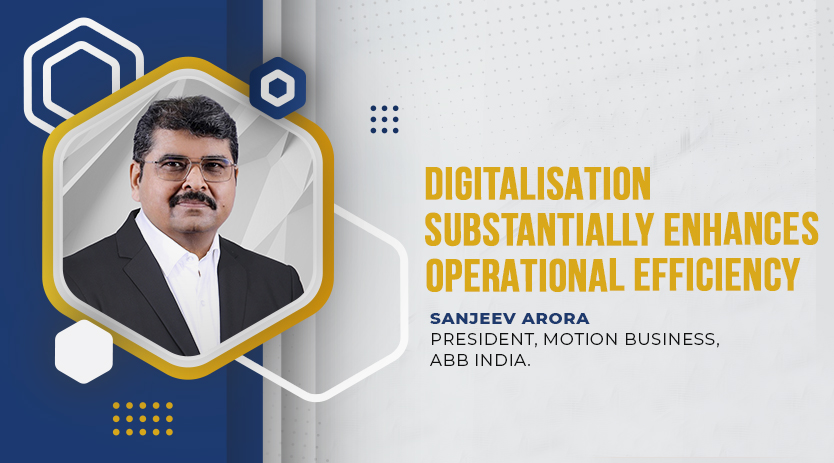Re-imagine processes using design-thinking principles
June 18, 2019 11:58 am
The level of automation is being redefined upwards with the support of Make in India campaign, says Ajay Gurjar, Deputy COO & Head of Business Operations, Yaskawa India (Robotic Division). He discusses how Indian manufacturers can only make the most of ‘Make in India’ by establishing manufacturing facilities which are world class.
Make in India for India’s industrial automation
With the Make in India initiative, India’s objective is to be an epitome of manufacturing hub, and at the same time, be globally competitive.There are many factors, which are considerably changing the outlook of the industry, such as ever-increasing need of complying to global standards, the constant need for improving operational excellence, desire for zero defects, productivity and quality improvement, etc.
Industrial automation industry is in an evolving phase. Efforts are being enhanced to achieve the ambitious target of making manufacturing contribute to India GDP and create 100 million jobs by 2022. This is further supplemented by certain macroeconomic factors, which are poised to bring a positive effect on manufacturing, such as increasing population, present lower per capita consumption and increasing purchasing power is driving the demand upwards.
The opportunities in automation sector in India, across various verticals, are growing multifold. On one hand, the opportunities are on account of additional capacities being put in place to meet growing demand. Whereas, on the other hand, the level of automation, which is relatively low in India as compared to global standards, itself is being redefined upwards with the support of Make in India campaign. Over all, the environment is very much encouraging for automation industry in India.
Industry 4.0 and IIoT gradually making inroads
Indian government has demanded the Indian manufacturers to adopt advanced manufacturing processes to ensure the success of Make in India initiative. Currently, the adoption is only seen in 10 per cent of companies and 80 per cent is expected to be adopted by 2020.
Indian manufacturers can only make the most of Make in India by establishing manufacturing facilities, which are world class. It is imperious to attain global standards to cater to the Indian and global market effectively. For this, the manufacturers need to invest more in terms of automation and the latest equipment and technologies.
Apart from this, Industry 4.0 and IIoT, which are gradually making inroads, could emerge as the game changer for Indian manufacturing. They can enable manufacturers to improve their productivity and quality manifold, thus, helping them progress in the automation investment phase. So now they can make a smarter investment by adopting IIOT technologies.
Industry 4.0 an additive advantage
Industry 4.0 and IIoT is actually a melange of many futuristic and advanced concepts and technologies which have the potential of transmuting the production scenario in the 21st century. It mainly comprises of a ‘connected shop floor’ where data is collected from various sensors and other input devices to be used for predictive maintenance, better control and long term analysis.
Robots, creating more efficient manufacturing operations
The production of industrial robots has grown tremendously over the past few decades. Robots have taken over many of the sensitive production tasks that demand ultimate precision and repeatability. Robots have indeed transformed manufacturing operations all around the globe.
Robotics improves the overall efficiency of a manufacturing process by creating efficient means of completing production tasks. Unlike humans, robots do not get tired and can work for days while meeting the quality and quantity requirements simultaneously. Modern industrial robots have the ability to adapt and take critical decisions during operations.
A sharp increase in the use of automated systems would change the way businesses evaluate their production and expansion plans. From precision machining and assembling to material handling, robots have been making things easier for manufacturers all around the globe.
Robotic process automation vs traditional automation
Robotic process automation (RPA) has been the superhero for industries for a long time. As the technology has made enormous strides, RPA has come up and quickly become the new approach to automate business processes, while replacing traditional automation.
Traditional automation still finds applications in several systems and has its own set of pros and cons.
Adopting intelligent automation
The next stage in the automation journey beyond robotic process automation is intelligent automation (IA), which includes technologies such as machine learning and dynamic workflow. Intelligent automation initiatives help to improve customer experiences, resulting in higher revenues, greater competitiveness, and increased market share.
To adopt intelligent automation, it is important for organizations to re-imagine processes using design-thinking principles to create winning customer experiences, and end-to-end solutions, while managing compliance and governance. Intelligent automation will evolve to leverage artificial intelligence over time, achieving the next era in automation, with more significant benefits.
Enterprises do not have much choice than to make a move towards
intelligent automation
Ajay Gurjar, Deputy COO & Head of Business Operations, Yaskawa India (Robotic Division)
Cookie Consent
We use cookies to personalize your experience. By continuing to visit this website you agree to our Terms & Conditions, Privacy Policy and Cookie Policy.



















 English
English Hindi
Hindi